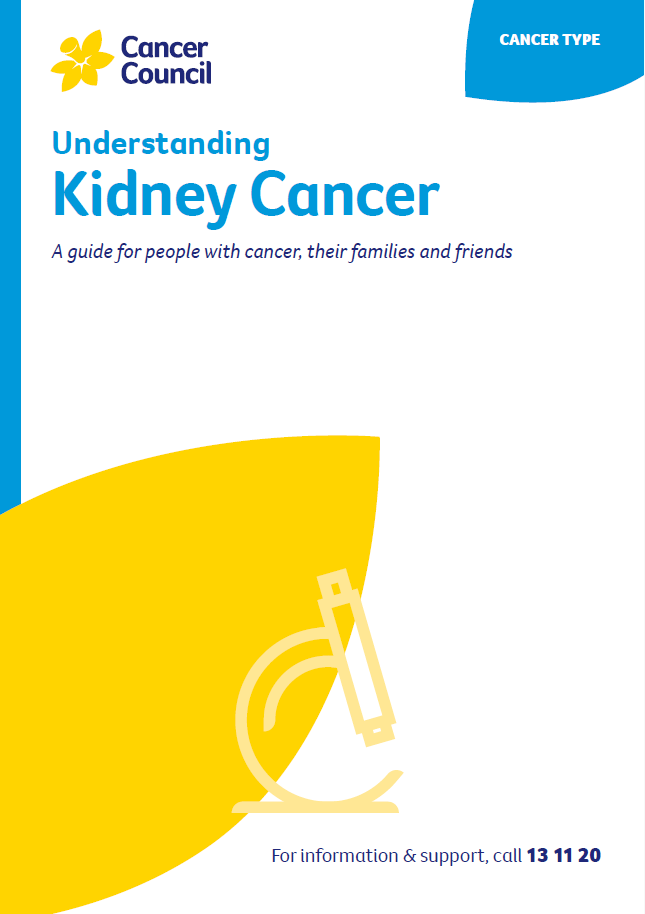- Home
- Kidney cancer
- Treatment for early kidney cancer
- Other treatments
Other treatments for early kidney cancer
If surgery is not the best approach, other treatments may be recommended to destroy or control early kidney cancer.
Learn more about:
Thermal ablation
This procedure uses heat to destroy small tumours. The heat may come from radio waves (radiofrequency ablation or RFA) or microwaves (microwave ablation or MWA). The heat kills the cancer cells and forms internal scar tissue. The doctor inserts a fine needle into the tumour through the skin, using a CT scan as a guide. The needle delivers either radio waves or microwaves into the tumour.
Thermal ablation is usually done under general anaesthetic in the x-ray department or the operating theatre. The procedure itself takes about 15 minutes and you can usually go home after a few hours. Side effects, including pain or fever, can be managed with medicines.
Cryotherapy
Also known as cryosurgery, cryotherapy kills cancer cells by freezing them. This treatment is not widely used in Australia. Under a general anaesthetic, a cut is made in the abdomen. The doctor inserts a probe through the cut into the tumour. The probe gets very cold, which freezes and kills the cancer cells. Cryotherapy takes about 60 minutes. You may have some bleeding or leakage of urine afterwards.
Stereotactic body radiation therapy (SBRT)
This specialised form of radiation therapy is also called stereotactic ablative body radiation therapy (SABR). It is a way of giving a highly focused dose of radiation therapy to an early kidney cancer when surgery is not possible. If you have SBRT, you will lie on a treatment table under a machine that directs radiation beams from outside the body to the kidney. SBRT is painless and is usually delivered over 1–3 days.
→ READ MORE: Treating advanced kidney cancer
Podcast: Making Treatment Decisions
Listen to more episodes from our podcast for people affected by cancer
More resources
Dr Alarick Picardo, Urologist, Fiona Stanley Hospital, WA (clinical review); Heidi Castleden, Consumer; Donna Clifford, Urology Nurse Practitioner, Royal Adelaide Hospital, SA; Prof Paul De Souza, Medical Oncologist and Professor of Medicine, Nepean Cancer Care Centre, The University of Sydney, NSW; Mike Kingsley, Consumer; Prof Declan Murphy, Urologist and Director of Genitourinary Oncology, Peter MacCallum Cancer Centre, VIC; Caitriona Nienaber, 13 11 20 Consultant, Cancer Council WA; Luke O’Connor, Urology Nurse, Royal Brisbane and Women’s Hospital, QLD; A/Prof Shankar Siva, Radiation Oncologist and Cancer Council Victoria Colebatch Fellow, Peter MacCallum Cancer Centre, VIC; A/Prof Homi Zargar, Uro-Oncologist and Robotic Surgeon, Western Health and Royal Melbourne Hospital, VIC.
View the Cancer Council NSW editorial policy.
View all publications or call 13 11 20 for free printed copies.

